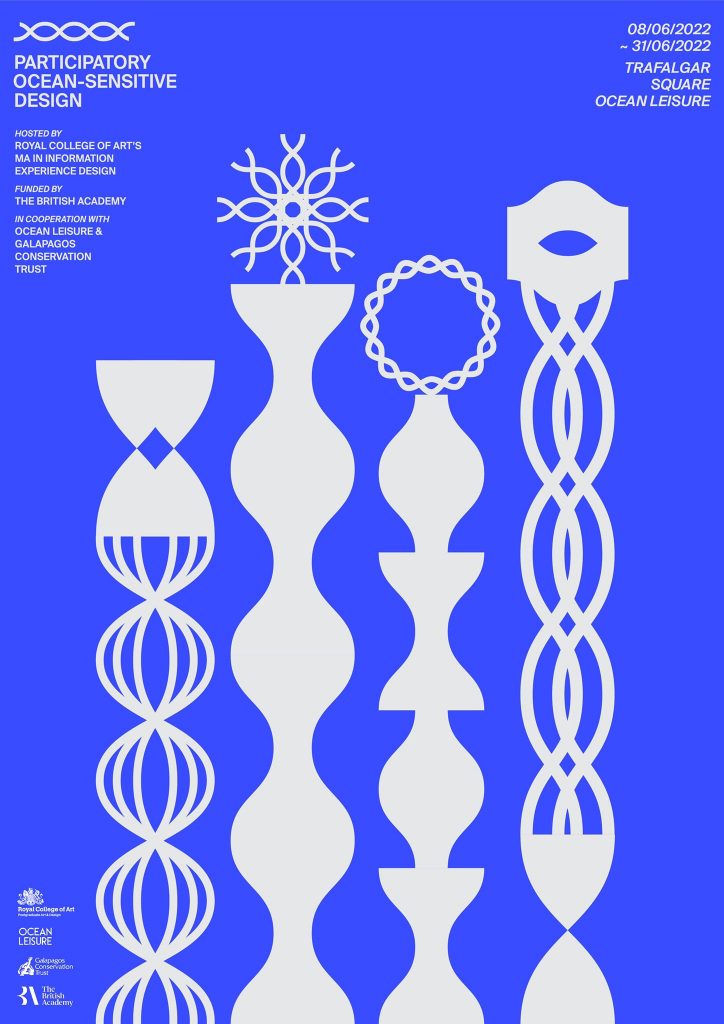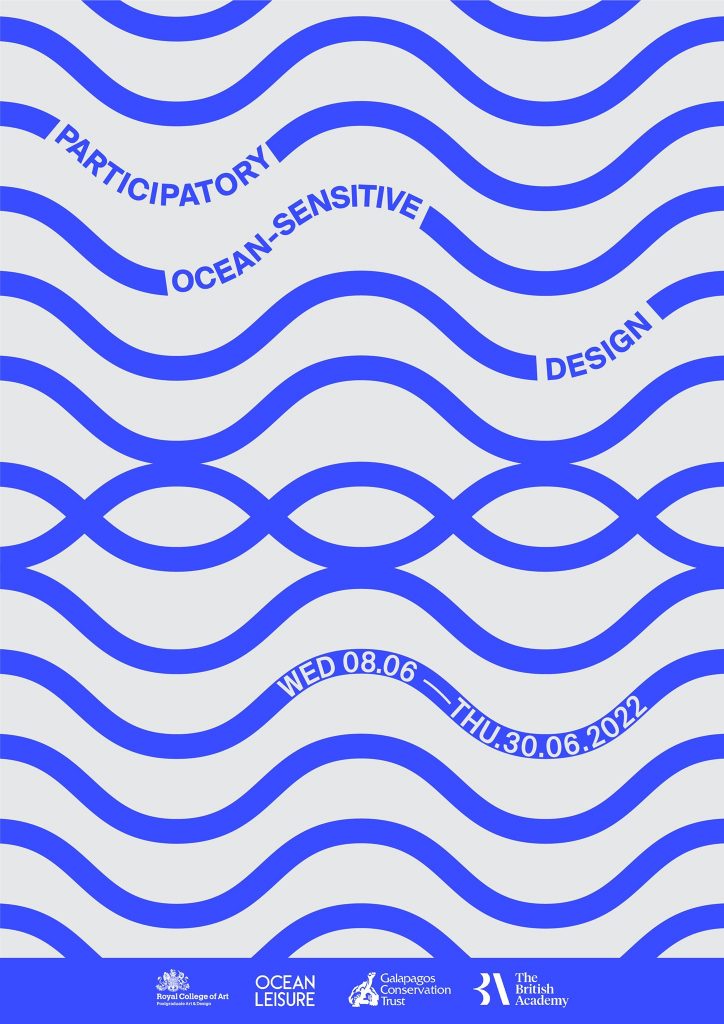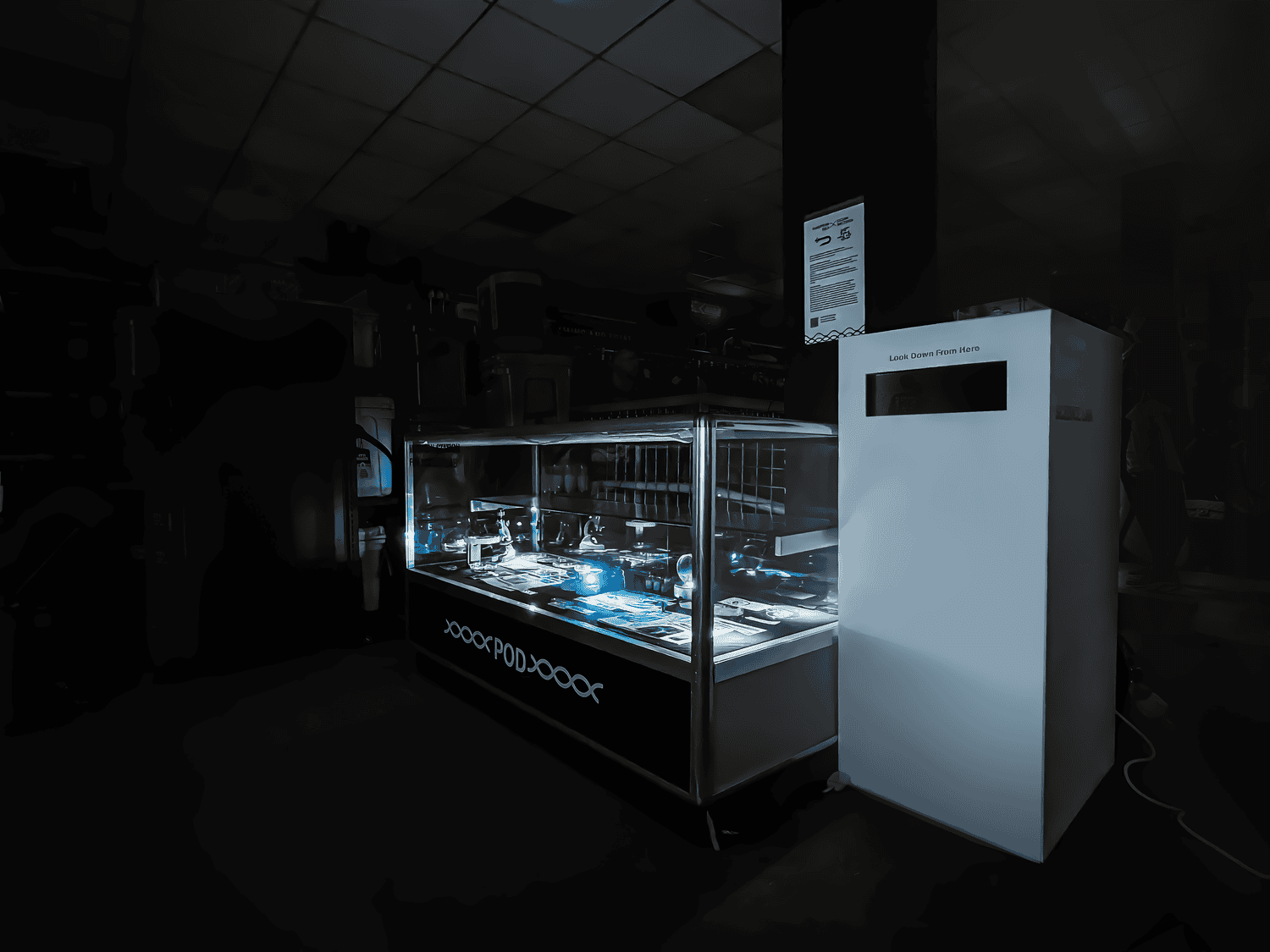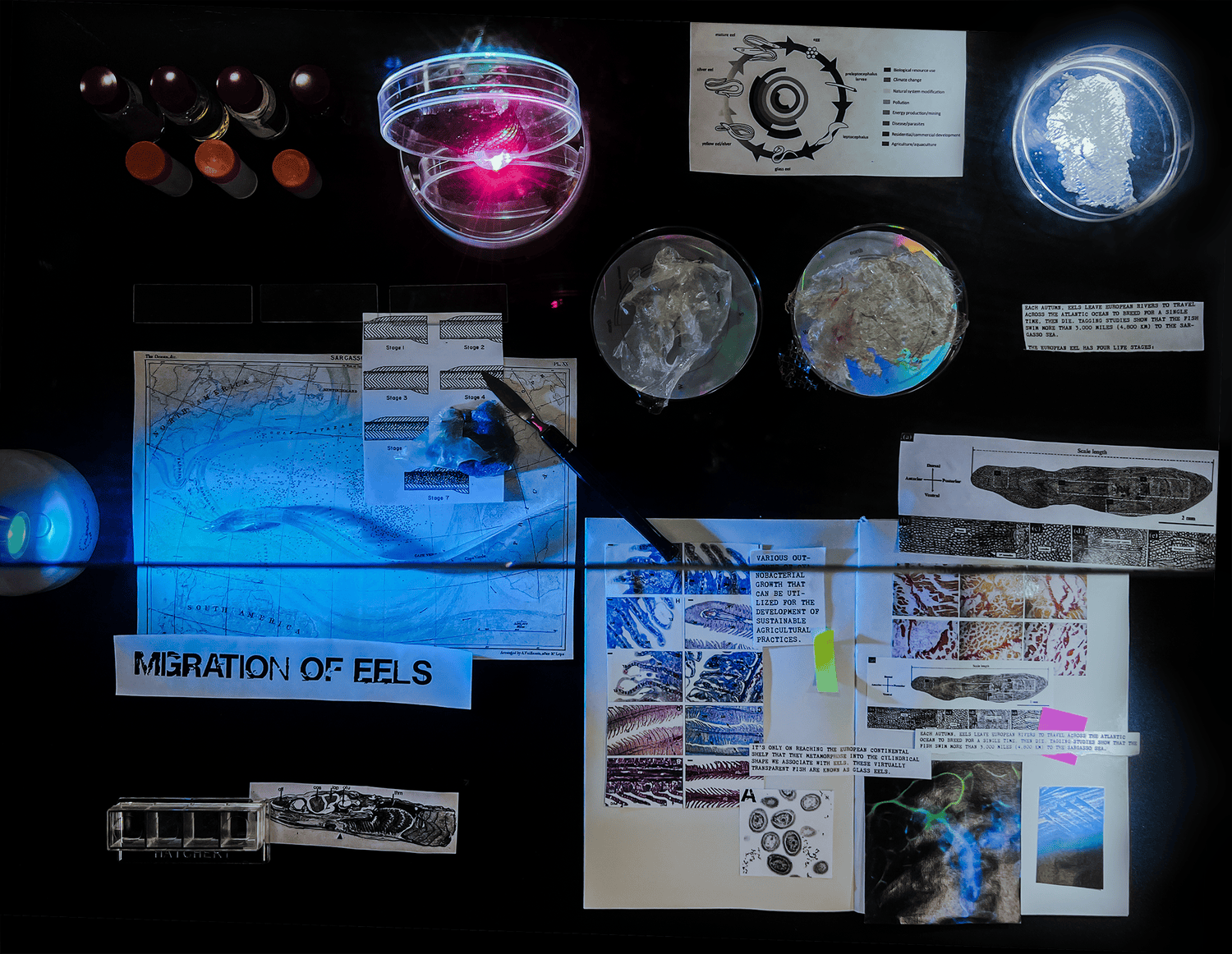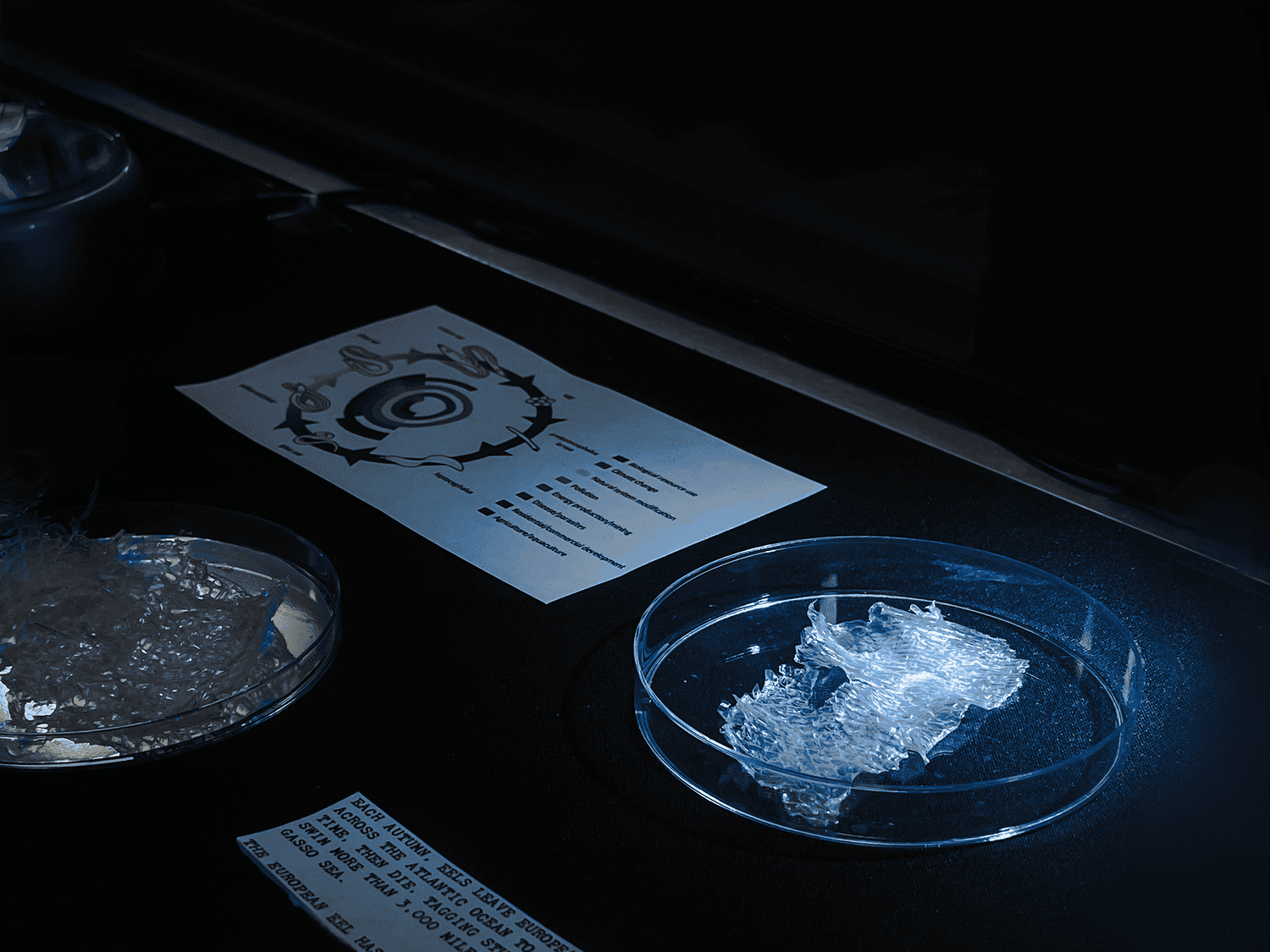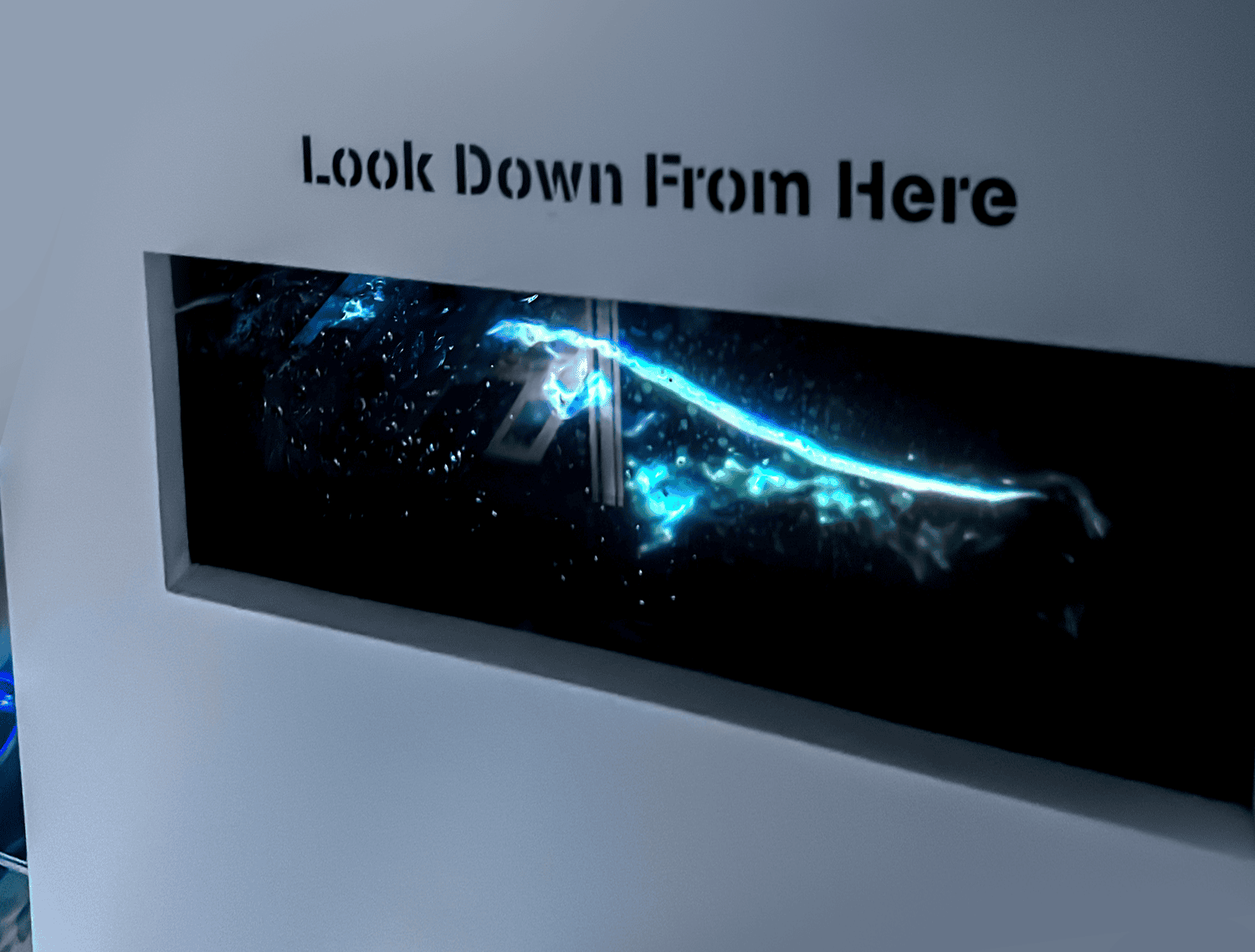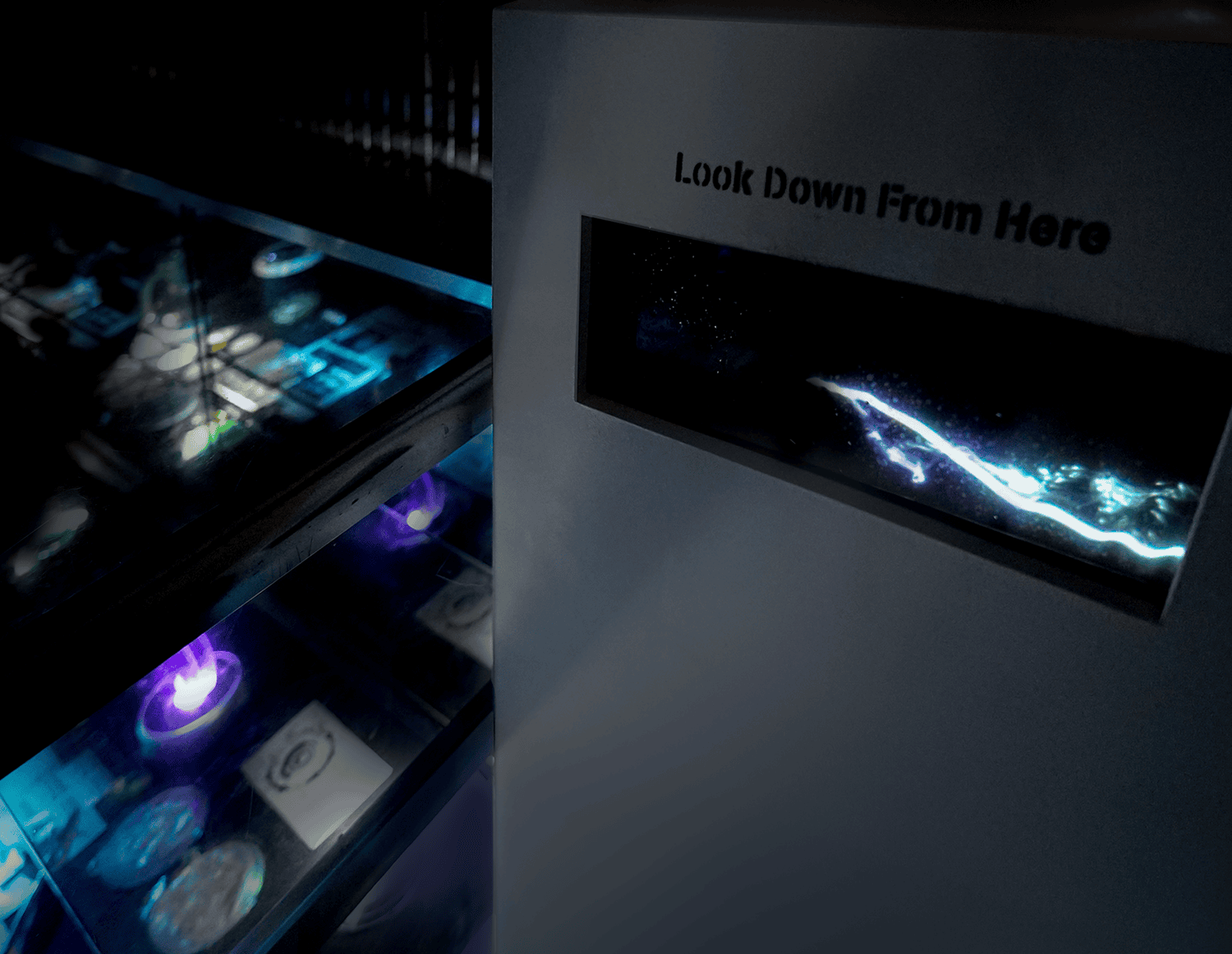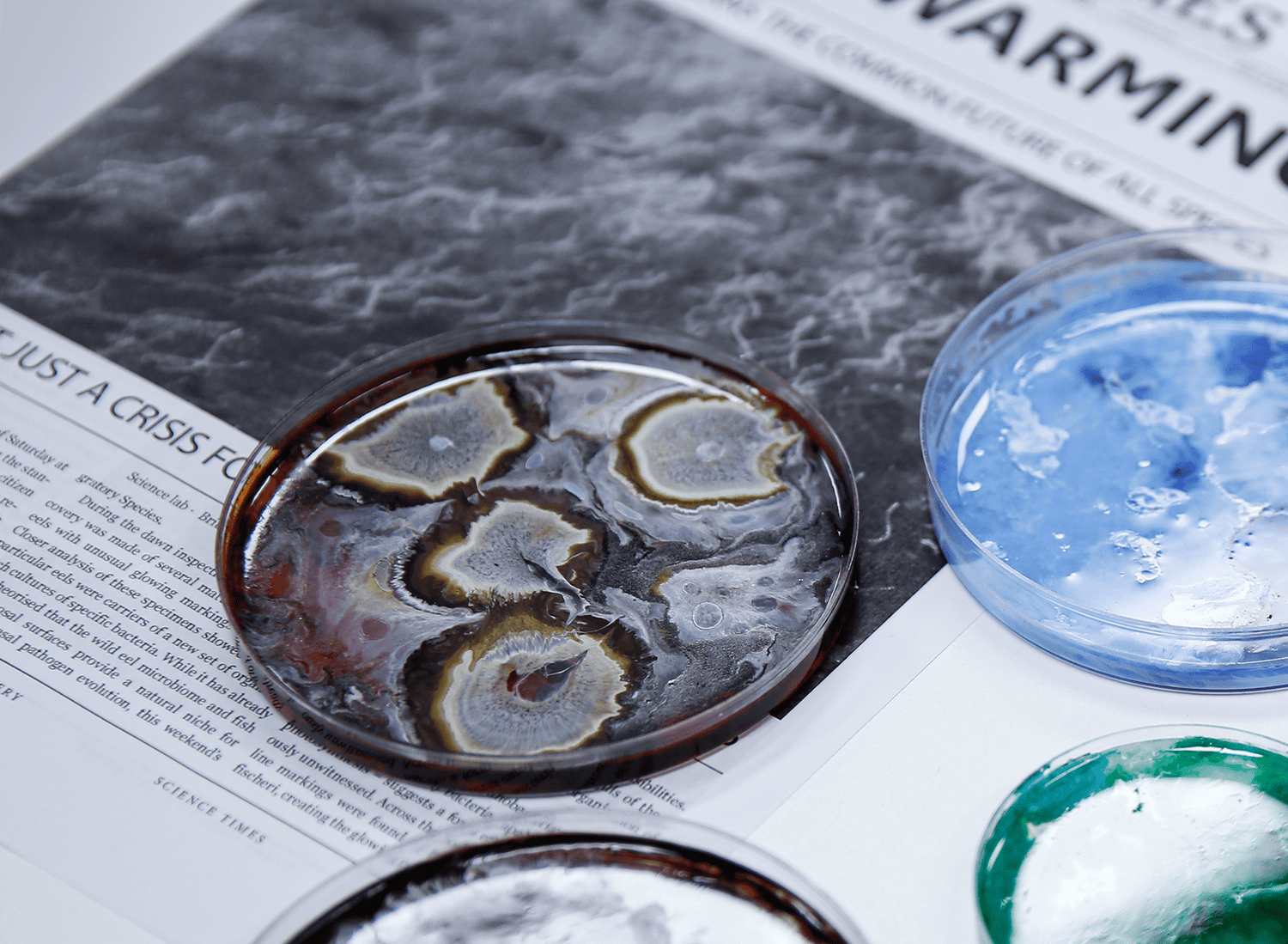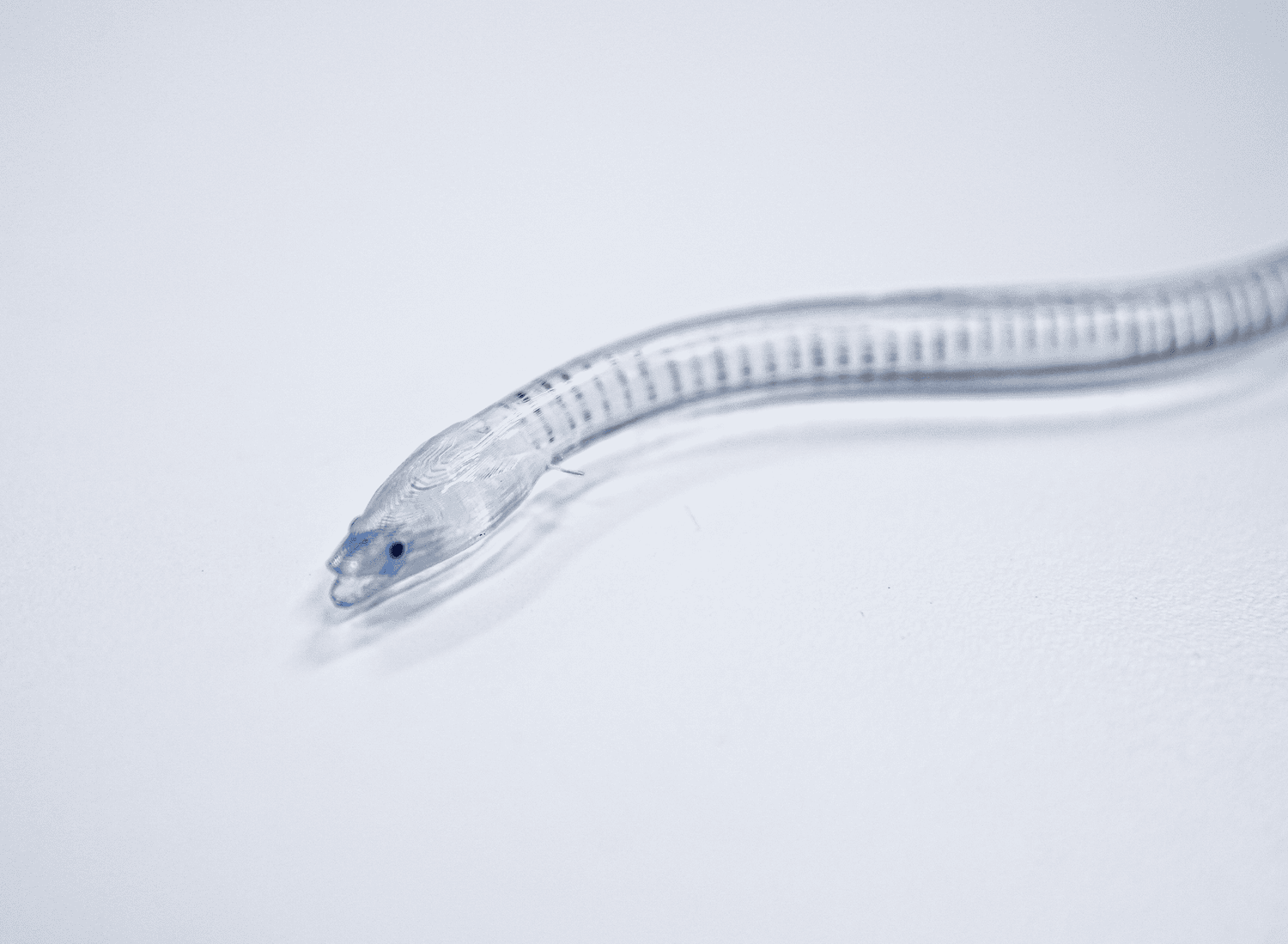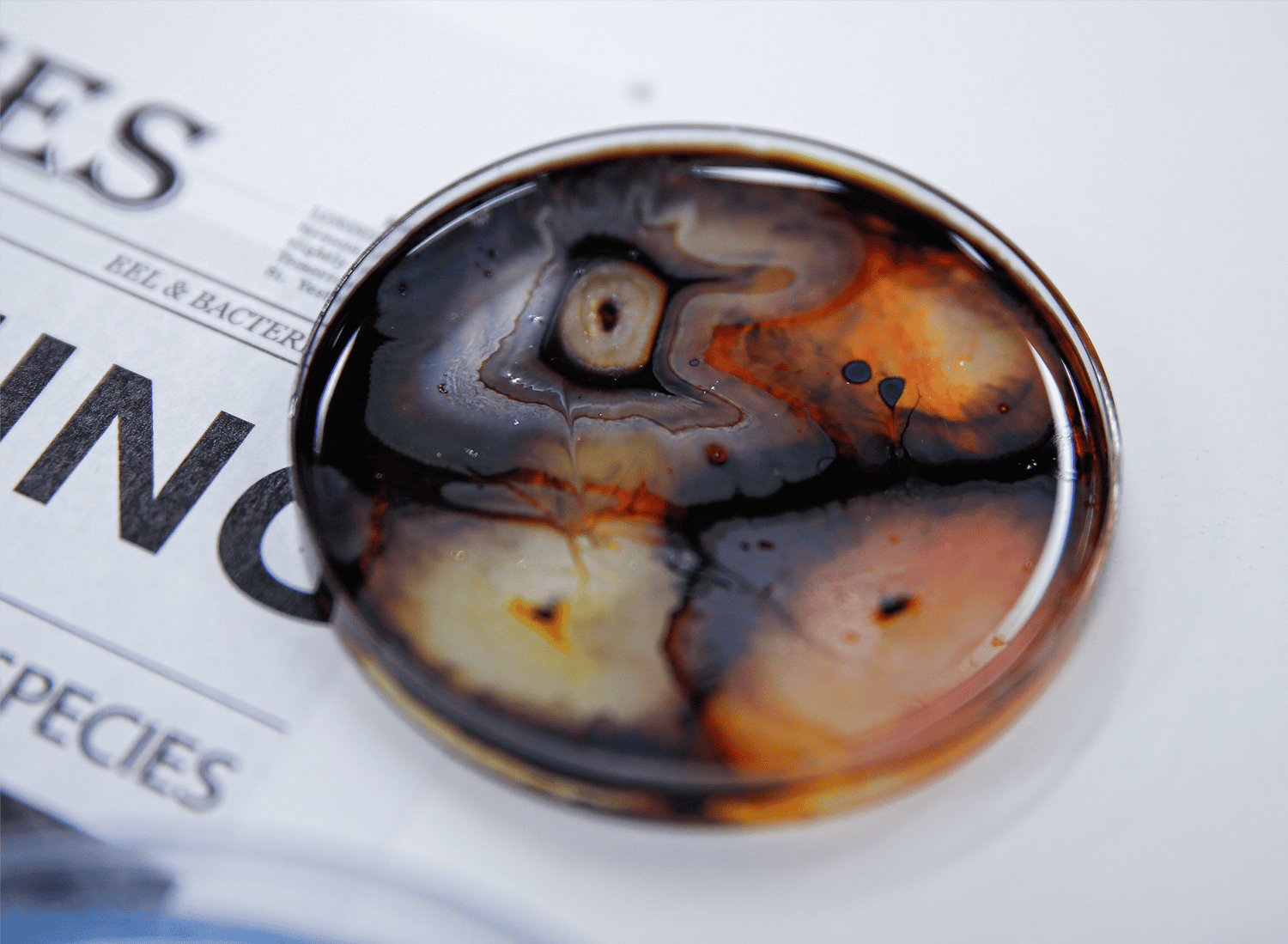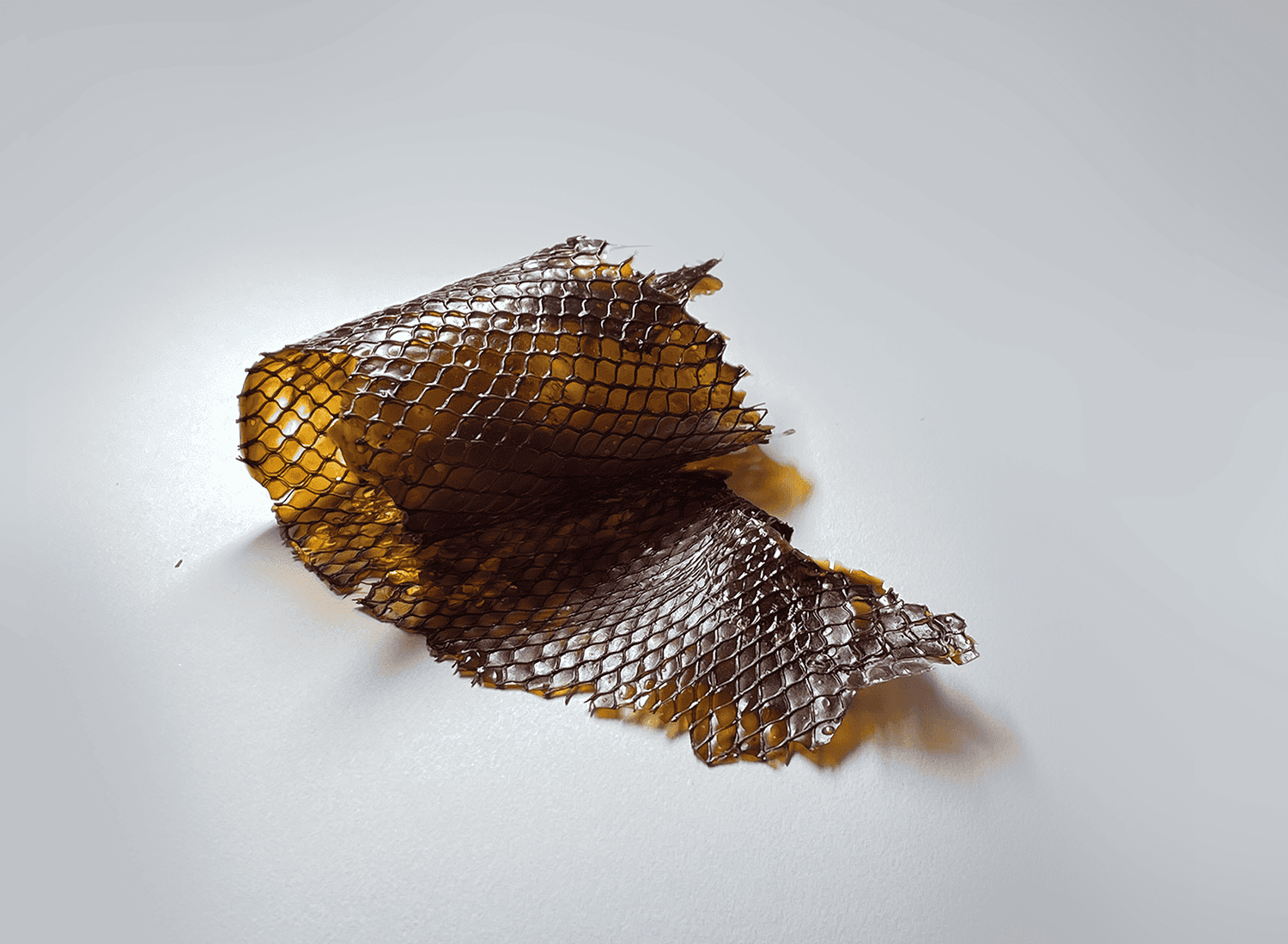<Mutation Station for Science Lab>,2022
Content:
POD (Participatory Ocean Sensitive Design) is a collaborative, socio-environmental game that generates responses to plausible climate change scenarios through systems-oriented thinking and making. Mutation Station for Science Lab is an art response to climate emergency from the perspectives of ocean bacteria and eels in this project.
We envisioned a new mutated symbiosis that could occur in 2027. A luminescent biofilm formed on mutated eels by various kinds of ocean bacteria will protect the eels from ocean pollutions, for example, some bacteria have the ability of purifying water. In return, eels’ mobility, together with the luminescence that the bacteria create, will help the bacteria convey their experimental compositional information and manifesto to humans.
From the human perspective, the narrative goes as follow:
In the process of standard May eel monitoring, a simultaneous discovery was made of several mature yellow and silver eels with unusual glowing markings and blue gills. Closer analysis of these specimens showed that these eels were carriers of a new set of organised batch cultures of specific bacteria.
There are three main types: the blue cyanobacteria, the only bacteria capable of oxygenic photosynthesis, are found on the bony operculum above the gills; the luminescent Aliivibrio fischeri form the distinct glowing patterns across the eels’ body; almost following these patterns, mucosal colonies of Ideonella sakaiensis are found alternating with colonies of the alkane-degrading bacterium Alcanivorax borkumensis. It is unusual to see free swarming bacteria in such structured patterns. More commonly associated with marine environments, the presence of these bacteria as an experimental biofilm on a stock of wild silver eels has a potentially very positive outlook for the fate of these organisms.
The dissemination of these new patterned eels may well have a significant impact on the water cultures across the entire Gulf Stream and the Thames tidal area in which the eels are most vulnerable, due to the survival risk in polluted waters as well as the limit on silver eel escapement routes. These new bacterial organisations may be an unprecedented step in learning about dealing with several anthropogenic, oceanic and climatic factors using the new propensities of this eel biofilm for self-cleaning waters, combining self-sufficient and environmentally benign colonies and finally taking a big step towards new forms of bioremediation of contaminated environments.
Scientists have established the Mutation Station for Science Lab to further investigate the discovery and the potential usage.
Collaborators:
Bryan Wu, Amy Cutler, Ting-yu Lee, Ke Peng, Qing Wang
Project developed at:
Royal College of Art White City
Exhibition:
